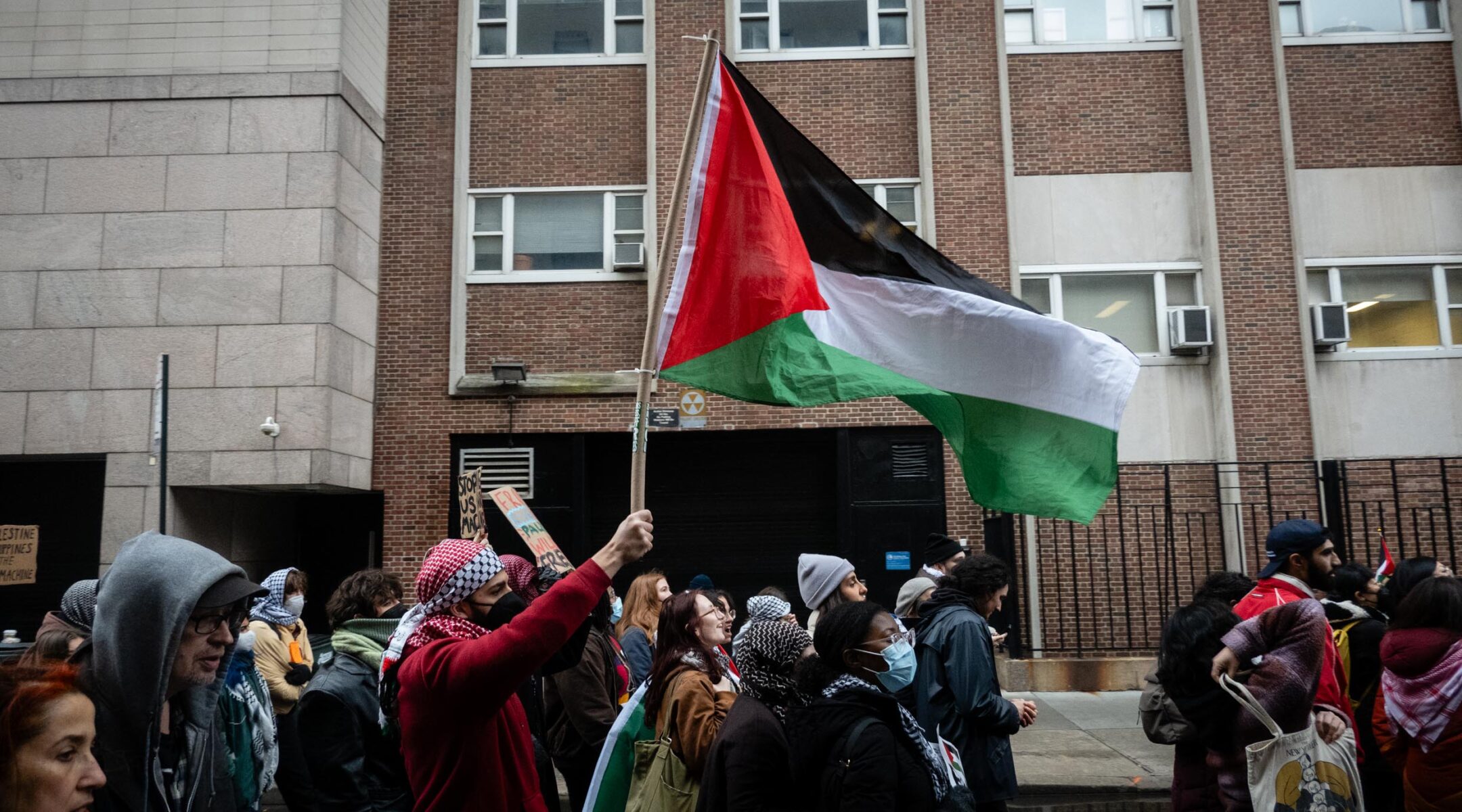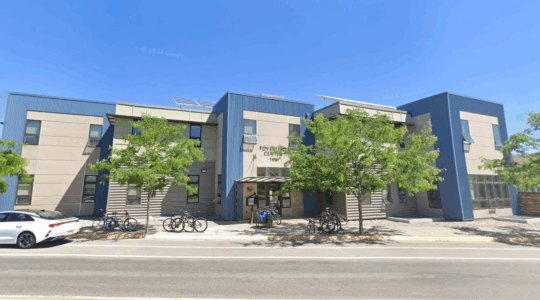(New York Jewish Week) — Jewish students at Columbia University are experiencing “isolation and pain” and the university isn’t doing enough to discipline unauthorized protests surrounding the Israel-Hamas war, according to a new report by the school’s antisemitism task force.
The report, released Monday, is a landmark in the discourse over whether Jewish and Israeli students have been safe at the Ivy League school since Hamas’ Oct. 7 attack on Israel and the ensuing war touched off a wave of protests on campuses across the country. The task force was formed in the weeks after Oct. 7 with the mandate of formulating strategies to combat antisemitism at Columbia, and is one of several to be formed at elite universities nationwide.
Now, as Columbia faces investigations by Congress and the Biden administration, and pressure from students, alumni and donors over antisemitism, the task force says Jewish students are treading an ideological minefield and lack support from the administration. Rules to shield them from discrimination, the report says, have gone part way in helping Jewish students feel protected but often go unenforced.
“Some Jewish and Israeli Columbia affiliates have been the object of racist epithets and graffiti, antisemitic tropes, and confrontational and unwelcome questions, while others have found their participation in some student groups that have nothing to do with politics to be increasingly uncomfortable,” the 24-page document says.
It says that Jewish students feel marginalized whether they support Israel or not, and adds, “While there is strong support among Jewish and Israeli Columbia affiliates for the right to protest, as well as widespread heartbreak about the tragic loss of civilian life in Gaza, many have heard chants at protests like ‘Globalize the Intifada’ and ‘Death to the Zionist State’ as calls for violence against them and their families.”
The task force is conducting research on university policies and interviewing community members, and will issue a series of reports in the coming months with the goal of gaining a deeper understanding of the campus climate and making recommendations.
The task force is co-chaired by David M. Schizer, the former dean of the law school and the former CEO of the American Jewish Joint Distribution Committee. It includes Columbia faculty from the law school, business school, school of public health and engineering school.
Columbia has been the site of heated activism around the conflict since Oct. 7. Nine days after the Hamas invasion, a Columbia student was attacked by a 19-year-old on campus during a dispute over posters of Israeli hostages. Pro-Palestinian students have also staged frequent demonstrations, many of them unauthorized.
Last year the school banned the campus chapters of the anti-Zionist Jewish Voice for Peace and Students for Justice in Palestine for violating school rules. Supporters of the groups decried the decision as a suppression of protected speech and have claimed to be harassed by pro-Israel activists.
The task force emphasized the right to peaceful demonstrations, but said that rallies on campus had violated university rules by disrupting classes and events, occupying academic buildings and using “ugly language to berate individuals” who were filming the demonstrations or walking by. “Discrimination and harassment are not protected speech,” the report said.
The report backed rules meant to regulate protests that the university issued last month, limiting the times and locations where demonstrations may be organized. But the task force criticized the enforcement of those rules, saying that the university has “generally not tried to stop violations as they have occurred,” and instead focused on disciplinary measures after the events.
The report also criticized faculty for participating in unauthorized demonstrations.
“The university should do more to stop unauthorized protests as they occur, using approaches that are effective but not confrontational,” such as warning demonstrators in academic buildings to leave, and disciplining them if they continue to violate the rules, the report said.
The report urged the university to more effectively investigate infractions by simplifying the process for filing complaints, aggregating reports of infractions and making the deadlines for reporting violations more flexible.
Columbia is one of a few Ivy League colleges to have come under heavy scrutiny since the Hamas attack due to campus activism that pro-Israel advocates say veers into antisemitism and harassment. The presidents of Harvard, the University of Pennsylvania and the Massachusetts Insitute of Technology sparked an uproar in December for saying at a congressional hearing that calls for the genocide of Jews did not necessarily violate campus speech rules.
Columbia President Minouche Shafik was invited to the hearing but did not attend, citing a previously scheduled engagement overseas. Two of the presidents who did testify resigned in the wake of the December hearing.
The Columbia report said that calls for genocide violate campus rules, but acknowledged that protest statements are subject to interpretation, and urged the university to clarify what constitutes harassment.
The task force also said that the university had applied a double standard to Jewish students’ complaints. In recent years, the university has “deferred to a protected class’s views” by focusing on the impact of speech seen as harmful, but that a “different norm has applied to many Jewish and Israeli Columbia affiliates,” the report said.
“When they have complained about phrases and statements that cause them pain, some students, faculty members, and staff have not deferred to their concerns” and instead focused on the intent of the speakers or defended their right to speak their minds, the report said, urging the university to be more consistent.
Shafik welcomed the report, saying in a statement, “It is essential to ensure that debates and disagreements across Columbia are rooted in academic rigor and civil discourse, and that Jewish students, faculty, and staff, and all members of our community, feel safe, supported, and included.”
The report was issued a day after Columbia’s student council passed a measure calling on the university to divest from Israeli companies, cut academic ties with Israeli institutions and end Columbia’s dual degree program with Tel Aviv University.
The student council passed a similar resolution in 2020. The university president at the time, Lee Bollinger, said Columbia would not adhere to the resolution because the university community had not reached a consensus on the issue. The university’s Advisory Committee on Socially Responsible Investing came to the same conclusion regarding this week’s resolution.
The New York Jewish Week brings you the stories behind the headlines, keeping you connected to Jewish life in New York. Help sustain the reporting you trust by donating today.





